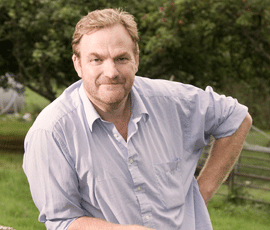Climate change predictions are drying up

I loved Matthew Naylor’s piece (Opinion, 13 January) about not going to conferences and meetings.
I, too, avoid them. In my case, it’s probably because they tend to take place too early in the day for me. ‘Breakfast meetings’ fill me with dread. Flindt Towers echoes to the sounds of grumpy monosyllabic teenage grunting at that time of day – and it is normally me making them.
But there was one meeting the other day that I would have given anything to attend, even at breakfast time: the DEFRA drought summit.
All the great and the good were there: Mrs Spelman, the Environment Agency, Natural England, British Waterways, the Met Office, and representatives from the agricultural sector and environmental NGOs.
Reports suggest that there was much earnest discussion of this year’s drought, the problems it brings, and measures that can be taken. These measures ranged from the bleeding obvious, like stopping leaks, to the fairly major, like suggesting that farmers consider on-farm storage of water.
If I had somehow blagged my way in as an important person or a quangocrat, I think that it’s at this point that I would have been forced to put my hand up. Perhaps Mrs Spelman would have called for a silence, and all heads in the room would have turned to face me.
“Well. Mr Flindt?” she’d have asked (I assume these meeting are all very formal).
“Um, I’m sorry to butt in, Mrs Spelman, but I’m confused,” I would have said. “Ten years ago, there was another conference. It was called ‘Flood Risk in a Changing Climate’, and was held at the Royal Society in November 2001. The message from this conference was very simple: winters will get wetter. Rivers will burst their banks more often, and flooding will become more regular – as was indeed happening at the turn of the century. Climate change – or perhaps it was still called Global Warming in those days – was to blame. Messrs Osborn and Hulme, scientists at the Climatic Research Unit of the University of East Anglia, had models to prove it. Now, if a farmer at that conference had suggested it would be wise to start planning the building of a reservoir, he would have been laughed out of the building.
“And the Met Office’s very own Alan Thorpe, then director of the Hadley Centre for Climate Change Research, can be found a year earlier, in October 2000, peddling the same line. He told the BBC: ‘The number of days of very heavy rain could increase substantially so the risk of flooding is likely to increase.’
“So, my question is this: Would anyone at this urgent DEFRA drought summit agree that all these predictions were about as good as my tips as to who will win the Eurovision Song Contest? And does the fact that the Met Office’s long-term forecast has been shown to be as woefully, ridiculously and pathetically wrong as their predictions for next week have anything to do with their recent demand to be given the small matter of £42m to buy a new computer to improve their predictions?”
I suspect that, by this point, the silence of my audience would have replaced by the sound of urgent calls for security, and the splat of a large farmer being thrown out onto the street. And that, I suspect, that would be the end of my brief career as a DEFRA meeting groupie.
Charlie Flindt is a tenant of the National Trust, farming 380ha at Hinton Ampner in Hampshire.
What do you think about climate change? Have your say on our website forums.
Enjoy Charlie Flindt’s opinion pieces? He also writes an exclusive column about farm kit, Charlie’e Angles, which you can read on Farmers Weekly’s sister website Power Farming
